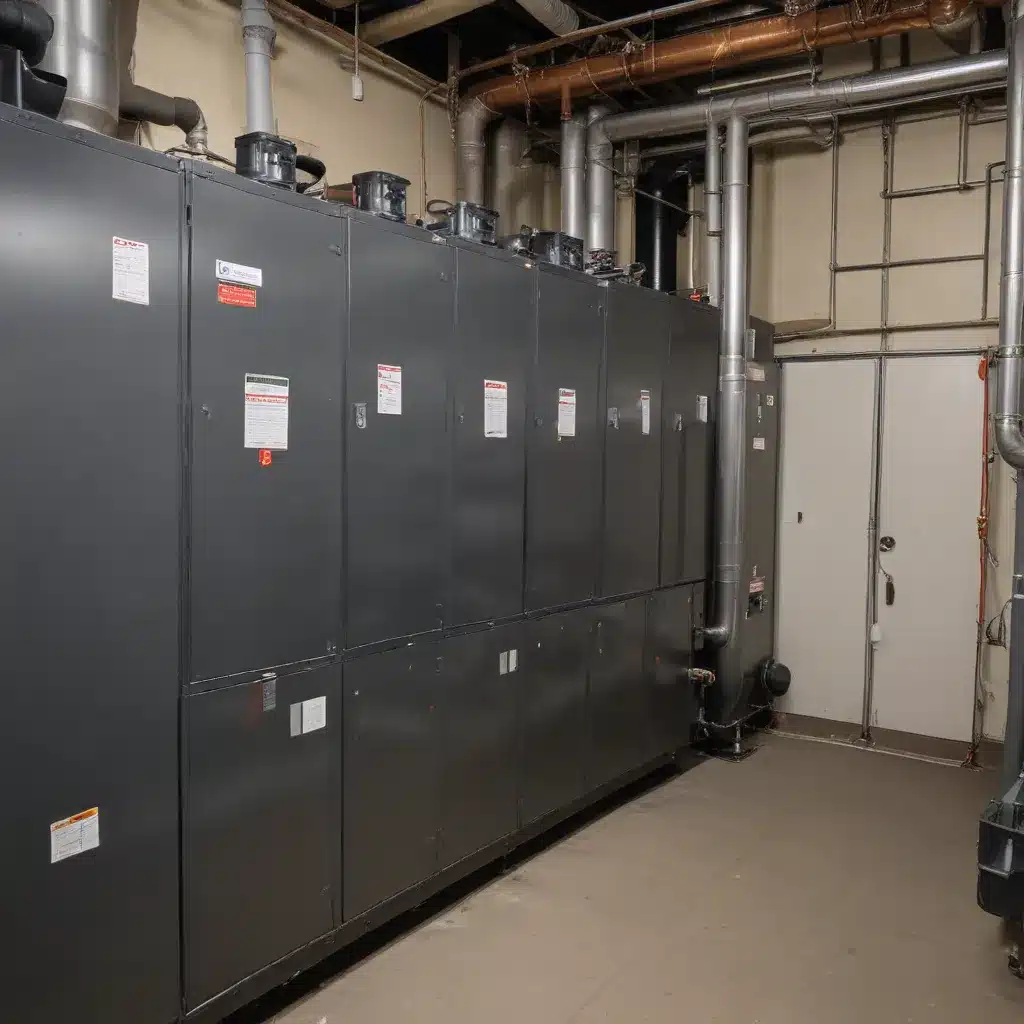
Identifying the Source of Boiler Noise
When it comes to maintaining a comfortable and peaceful living environment, the noise generated by home heating systems can be a significant source of frustration. Boiler systems, in particular, are prone to producing various types of unwanted sounds, ranging from rumbling and clanking to high-pitched whistles. Understanding the underlying causes of these noises is the first step in addressing the problem effectively.
One common culprit of boiler noise is the buildup of sediment or scale within the system. As minerals and debris accumulate over time, they can cause the boiler’s internal components to rattle and vibrate, leading to a range of disruptive sounds. Another potential issue is a faulty or worn-out circulating pump, which can create a loud humming or whirring noise as it struggles to push water through the system.
Additionally, the expansion and contraction of the boiler’s metal components during the heating and cooling cycles can result in popping, banging, or creaking noises. These sounds are often exacerbated by inadequate insulation or poor system design, which allows the vibrations to travel through the home’s structure.
To identify the specific source of the noise, it’s important to carefully observe the boiler’s behavior and listen for any unusual sounds. By taking the time to pinpoint the origin of the problem, you can then proceed with the appropriate troubleshooting and repair steps.
Troubleshooting Boiler Noise
Once the source of the noise has been identified, the next step is to address the underlying issue. Depending on the nature of the problem, there are several troubleshooting techniques that can be employed to mitigate the boiler noise.
Cleaning and Maintenance
If the noise is attributed to a buildup of sediment or scale, a thorough cleaning of the boiler’s internal components may be necessary. This can involve flushing the system or even performing a full descaling procedure. Consulting a professional plumber or heating technician can ensure the proper cleaning methods are used without causing further damage to the boiler.
Replacing Worn Components
In the case of a faulty circulating pump or other worn-out parts, replacement may be the best solution. Identifying the specific component causing the noise and swapping it out with a new, properly functioning unit can often resolve the issue. Again, it’s recommended to seek the expertise of a qualified technician to ensure the replacement is done correctly.
Addressing Vibration and Expansion Issues
To mitigate noise caused by the expansion and contraction of the boiler’s metal components, proper insulation and system design are crucial. Ensuring adequate insulation around the boiler and the associated piping can help absorb and dampen the vibrations, reducing the transmission of noise throughout the home.
Additionally, the installation of flexible couplings or vibration isolators between the boiler and the piping system can help prevent the transfer of vibrations. This simple modification can make a significant difference in the overall noise level.
Soundproofing Techniques
In some cases, even after addressing the underlying causes of the boiler noise, there may still be residual sound that requires additional soundproofing measures. Here are some effective techniques to consider:
Acoustic Insulation
Applying acoustic insulation, such as mass-loaded vinyl or specialized soundproofing panels, to the boiler’s enclosure can help absorb and contain the noise. These materials are designed to block the transmission of sound waves, preventing them from traveling through the walls and into the living spaces.
Ductwork Insulation
Insulating the ductwork associated with the boiler system can also play a crucial role in reducing noise. By wrapping the ducts in sound-absorbing materials, you can prevent the boiler’s vibrations and noises from being amplified and distributed throughout the home.
Structural Isolation
Isolating the boiler from the home’s structure can be an effective way to prevent the transmission of vibrations. This can be achieved by installing the boiler on a floating platform or using specially designed vibration-dampening mounts, which decouple the unit from the surrounding surfaces.
Acoustic Barriers
Strategically placing acoustic barriers, such as heavy curtains or sound-absorbing panels, around the boiler’s location can help contain the noise and prevent it from seeping into the living spaces. These barriers can be particularly useful in open-concept or multi-level homes.
Scheduling and Zoning
In some cases, the boiler noise may be more tolerable during certain times of the day or in specific areas of the home. Implementing a scheduling system or zoning the heating system can allow you to prioritize noise reduction in the most crucial living spaces, such as bedrooms or home offices.
By combining these troubleshooting and soundproofing techniques, homeowners can effectively mitigate the disruptive noise generated by their boiler systems, creating a more peaceful and comfortable living environment.
Embracing Energy-Efficient Solutions
While addressing boiler noise is essential for maintaining a comfortable home, it’s also important to consider the energy efficiency and long-term cost-savings of your heating system. Investing in high-efficiency boilers or exploring alternative heating technologies, such as heat pump systems, can provide a significant reduction in energy consumption and utility bills.
At DD Plumbing and Heating, we are dedicated to helping homeowners find the best solutions for their heating needs, balancing noise mitigation, energy efficiency, and overall home comfort. Our team of experienced plumbers and heating specialists can provide tailored recommendations and professional installation services to ensure your home remains warm, quiet, and cost-effective throughout the year.
Contact us today to learn more about our comprehensive suite of plumbing and heating services, and take the first step towards a more peaceful and energy-efficient home.


